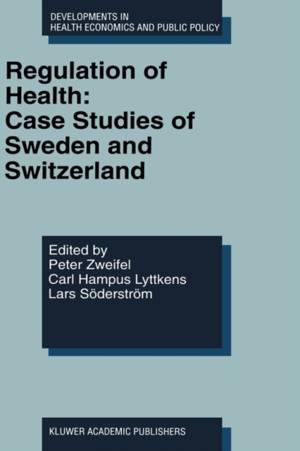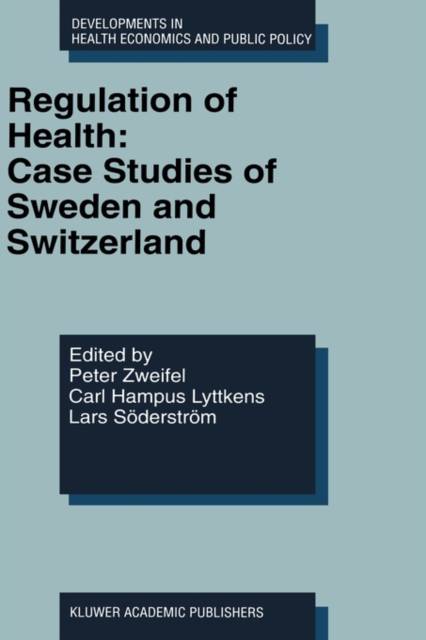
- Afhalen na 1 uur in een winkel met voorraad
- Gratis thuislevering in België vanaf € 30
- Ruim aanbod met 7 miljoen producten
- Afhalen na 1 uur in een winkel met voorraad
- Gratis thuislevering in België vanaf € 30
- Ruim aanbod met 7 miljoen producten
Zoeken
Regulation of Health: Case Studies of Sweden and Switzerland
€ 208,45
+ 416 punten
Omschrijving
Health care arguably is the single most regulated industry in industrial countries, and possibly in newly industrialized and developing countries as well. But what exactly is being regulated, what are the instruments used, and what are the effects and side-effects of such regulation?
Regulation of Health: Case Studies of Sweden and Switzerland seeks to resolve problems in answering these key questions regarding the health care sector in two countries - Sweden and Switzerland. The volume contains a series of studies that compare the regulation of health and health care in these two apparently very similar countries, in considerable detail. The contributing teams acquired a great deal of knowledge about health regulation in both countries; they also derived comparative predictions when regulation differs, using actual observations to check whether these predictions are borne out. These comparisons are based on the conditions prevailing in the mid-nineties.
Regulation of Health: Case Studies of Sweden and Switzerland seeks to resolve problems in answering these key questions regarding the health care sector in two countries - Sweden and Switzerland. The volume contains a series of studies that compare the regulation of health and health care in these two apparently very similar countries, in considerable detail. The contributing teams acquired a great deal of knowledge about health regulation in both countries; they also derived comparative predictions when regulation differs, using actual observations to check whether these predictions are borne out. These comparisons are based on the conditions prevailing in the mid-nineties.
Specificaties
Betrokkenen
- Uitgeverij:
Inhoud
- Aantal bladzijden:
- 274
- Taal:
- Engels
- Reeks:
- Reeksnummer:
- nr. 7
Eigenschappen
- Productcode (EAN):
- 9780792383420
- Verschijningsdatum:
- 31/10/1998
- Uitvoering:
- Hardcover
- Formaat:
- Genaaid
- Afmetingen:
- 156 mm x 234 mm
- Gewicht:
- 580 g

Alleen bij Standaard Boekhandel
+ 416 punten op je klantenkaart van Standaard Boekhandel
Beoordelingen
We publiceren alleen reviews die voldoen aan de voorwaarden voor reviews. Bekijk onze voorwaarden voor reviews.










